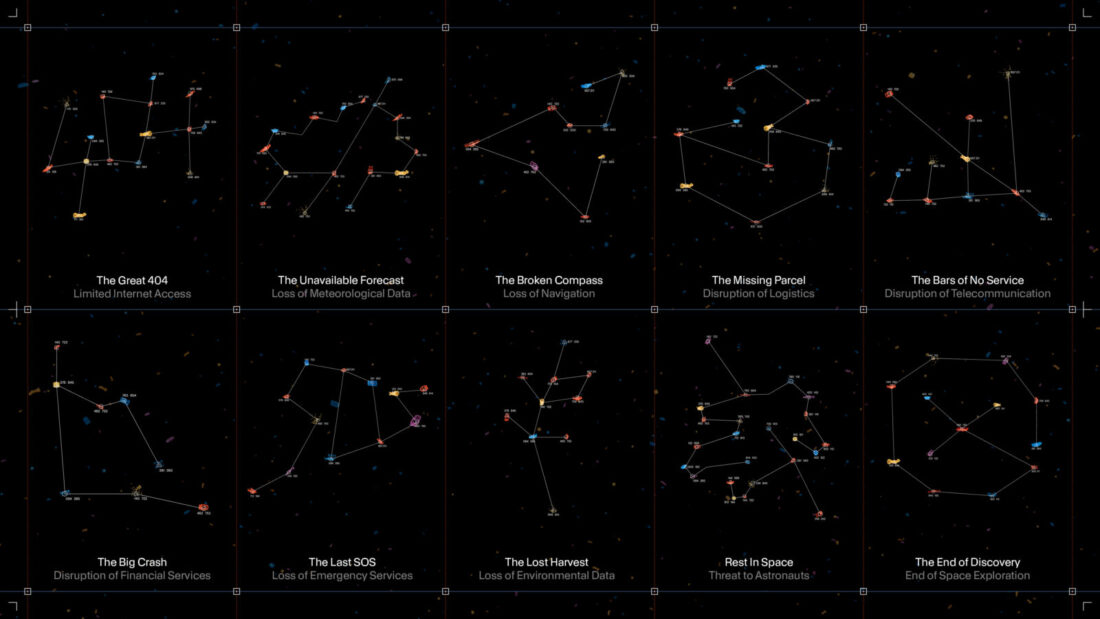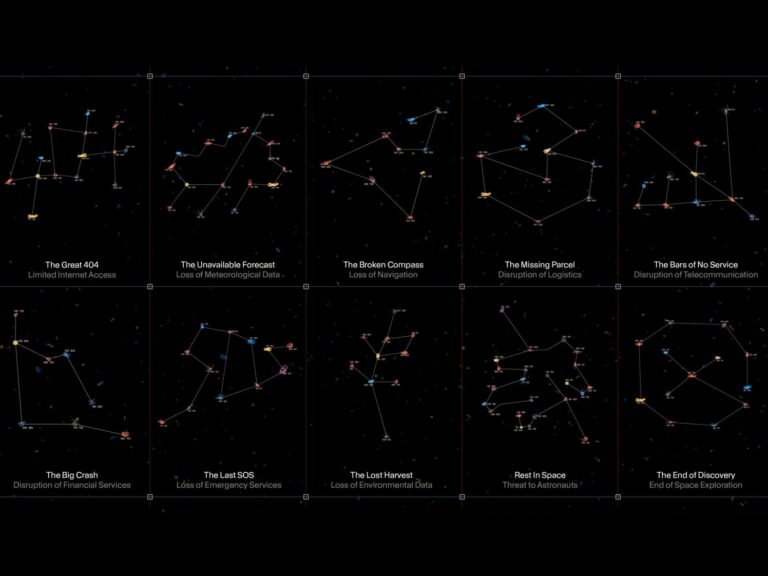Astroscale’s UK National ADR Mission COSMIC Achieves Significant Progress in Space Cleanup Efforts
Harwell, Oxford, UK, April 22, 2024 – This Earth Day, Astroscale Ltd. (“Astroscale UK”), a subsidiary of Astroscale Holdings Inc, announces the successful completion of the Preliminary Design Review phase with the UK Space Agency for its groundbreaking national Active Debris Removal (ADR) mission, which Astroscale has named COSMIC – Cleaning Outer Space Mission through Innovative Capture.
Astroscale is also proud to announce its partnership with Space Trash Signs, an initiative to visualise the consequences of space debris on different aspects of life on Earth – highlighting the imperative need for missions such as COSMIC.
The mission milestone marks a crucial step forward in addressing the urgent issue of space debris threatening Earth’s orbital environment. In a world facing an escalating crisis of space pollution with over 10,000 satellites currently filling Earth’s orbits and an alarming estimated 160 million pieces of small space debris endangering space operations, the significance of the UK’s space sustainability efforts cannot be underestimated.
The Space Trash Signs project highlights the vital satellite services that Astroscale is working to protect. Together the collaborators consider the ramifications of “a day without satellites”, where the world grapples with the disruption of vital services:
- Loss of satellite navigation disrupts the lives of over 6 billion people as global positioning systems falter. The need for innovative solutions to safeguard satellite navigation networks becomes ever more pressing.
- Over 43 million individuals who rely on satellite-based internet, particularly in remote regions, face the prospect of losing vital connectivity. By 2029, this number is projected to soar to 110 million, highlighting the critical need for sustainable solutions to safeguard this bridge in the digital divide.
- Loss of accurate weather forecasts using satellite-derived meteorological data disrupts over 80 percent of the global population, with significant consequences for those in areas prone to extreme weather.
- The absence of satellite imaging jeopardises agricultural practices and potentially leads to further environmental degradation. Environmental monitoring is crucial for safeguarding almost 510 million square kilometres of Earth’s ecosystems, with over half of all climate change variables monitored from space only.
- The disruption to the logistics industry, predicted to be responsible for the delivery of over 205 billion parcels worldwide in 2024, causes impact on healthcare, manufacturing, and emergency services.
- In the face of escalating natural disasters fuelled by climate change, the loss of satellite-based emergency services risks the safety of 3.4 billion individuals worldwide.
- Focusing on the UK economy, £7.6 bn of UK GDP would be lost if satellite navigation services went down for a week.

To address this challenging prospect, COSMIC aims to be the first UK national mission to remove two inactive British registered satellites currently orbiting Earth to demonstrate the potential of ADR technology. The UK’s leadership will demonstrate on the global stage what needs to be done to secure our economic and environmental future in space. Astroscale is proud to be part of this programme, pushing forward the commercial in-orbit servicing economy with innovative national capabilities, world-leading facilities and strategic partnerships throughout the UK space supply chain.
As part of the Preliminary Design Review phase for the UK ADR COSMIC mission, Astroscale has developed a detailed mission design and has matured critical technologies, capitalising on the heritage from its ELSA-d and ELSA-M missions, including:
- Development of autonomous in-space guidance and navigation and control algorithms critical to achieve the UK ADR mission objectives in a safe and robust way,
- Analysis of potential UK registered debris “client objects”, using space situational awareness data from multiple sources,
- Design of an innovative low-cost robotic arm, allowing precise, safe, and secure capture of client satellites,
- Demonstration of the feasibility of detumbling client satellites rotating at rates up to 10 degrees per second using the COSMIC servicer’s thrusters.
“With the completion of the Preliminary Design Review for the UK Space Agency’s ADR mission, we are thrilled to continue our work toward securing the space environment,” said Nick Shave, Managing Director of Astroscale UK. “The Astroscale COSMIC mission design represents a vital step in addressing the challenges posed by space debris and ensuring the sustainability of space activities for generations to come. The UK ADR mission will enable future institutional and commercial markets for in-orbit servicing by further proving critical technologies such as Rendezvous Proximity Operations (RPO) and low-cost in–space robotics.
Astroscale has also recently been awarded funding from the UK Space Agency for a feasibility study to refuel the UK ADR spacecraft, partnering with industry-leading companies to focus on ensuring the long-term sustainability of space by extending mission lifespans.
Ray Fielding, Head of Sustainability & ADR Mission at the UK Space Agency, said, “We are delighted that Astroscale has successfully completed the PDR phase for COSMIC – this is a significant milestone in the UK Space Agency’s national ADR mission, which is designed to be refuellable and, therefore, fully sustainable. As such, Astroscale’s refuelling study – one of four we are investing in – is a vital activity to identify the most effective solution and market”.
Astroscale’s dedication to advancing space technology and preserving Earth’s orbital environment underscores its commitment to a safer and more sustainable future for all of us and our planet. As the COSMIC mission progresses, Astroscale will continue leading the charge against space pollution and shape the future of space from the UK.
END

 Visit U.S. Site
Visit U.S. Site




